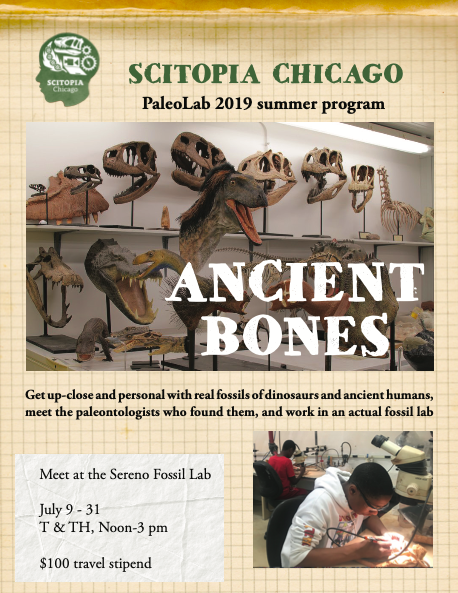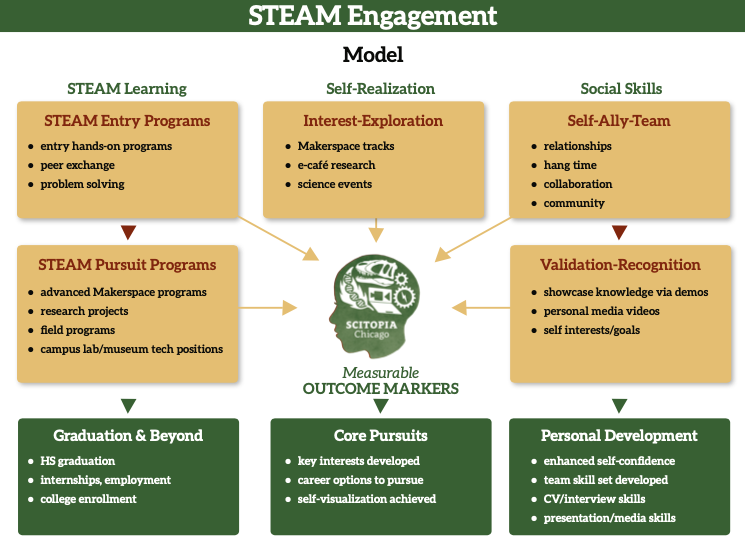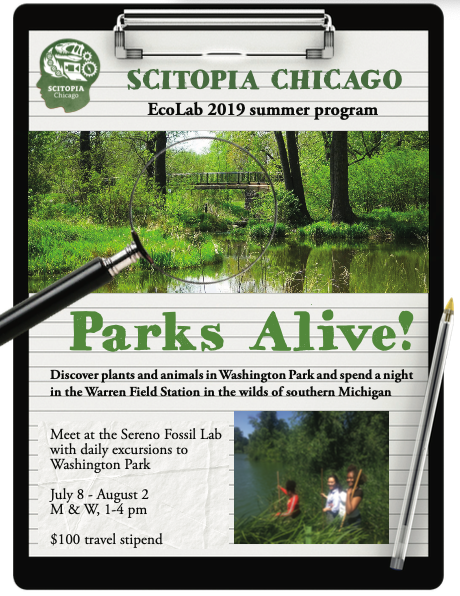“What I enjoyed most was the variety of experience because they opened my eyes to how much I was missing out on, and it actually piqued my interest a lot! I feel like it will impact me in the future by the friends I’ve made there, and the knowledge I’ve gained and can carry on with me. It was definitely fun!”
Learning
Model Programs
Scitopia Chicago (SC) programs are based around three interrelated paradigms for science engagement and self-realization:
- digitally connected learning
- curiosity-driven, hands-on projects
- mentoring
Parks Alive! Program
The Parks Alive! program explores the vast ecological and biological diversity of Washington Park. Youth participants will become “citizen scientists,” getting their hands dirty finding and logging species on the iNaturalist social network to map the park while learning about native and non-native species. Participants visit the UChicago greenhouse and the Warren Woods Field Station. The program culminates in a final showcase event with video presentations of different local species to a community audience.
Ancient Bones Program
The Ancient Bones summer program delves into dinosaur science and human origins by engaging youth in hands-on activities in the University of Chicago Fossil Lab. Participants also visit the University of Chicago Paleoanthropology Lab, the Field Museum, and learn about the skeletal anatomy of dinosaurs and ancient humans. In the lab, participants are preparing fossil bones and creating their own 3-D printed dinosaur skulls.

Student Voices
“The programs boosted up my knowledge a lot, it impacted me in socializing with new people.”
Darius Jones
8th grade, Kozminski Elementary School
Engagement Model
SC divides an individual student’s experience into three dimensions with measurable outcomes:
- science learning
- self-realization
- social skills
For its personalized programs, SC aims to track student achievement through high school and beyond and continuously improve programming to best reflect participants interests and contribute success in future pursuits








